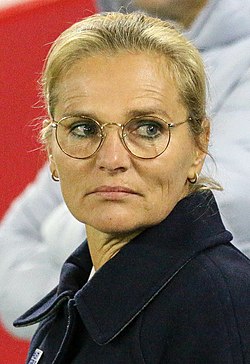The Role and Importance of the England Women’s Manager

Introduction
The landscape of women’s football has dramatically transformed over the past decade, and at the heart of this evolution is the figure of the England Women’s Manager. Currently led by Sarina Wiegman, the importance of this position transcends tactical decisions and team selections, embodying a symbol of progress and representation in sports. The manager not only shapes the team’s strategy but also inspires future generations of female athletes and brings visibility to women’s sports.
The Current Manager: Sarina Wiegman
Sarina Wiegman took charge of the England Women’s national team in September 2021. Since her appointment, Wiegman has brought a wealth of experience from her previous roles, particularly a successful stint as the head coach of the Netherlands national team where she led them to victory in the UEFA Women’s Euro 2017 and to the FIFA Women’s World Cup final in 2019. Under her stewardship, the Lionesses reached the finals of UEFA Women’s Euro 2022, showcasing not just skill but a significant improvement in team cohesion and performance.
Achievements and Challenges
During her time in charge, Wiegman has faced various challenges that recognise the evolving challenges in women’s football such as securing adequate funding and increasing support from governing bodies. This reflects on the recent initiatives taken by the FA to invest more in women’s football, a trend that echoes across clubs and leagues. The Lionesses’ remarkable journey to the Euro 2022 finals, which drew record audiences and media attention, has bolstered the case for more structured support and better funding for the women’s game.
Looking Ahead
As the FIFA Women’s World Cup approaches in 2023, the role of the England Women’s Manager becomes even more critical. Expectations are high, and the team’s preparation will focus on building upon the experiences drawn from past tournaments. The challenge will not only be about translating tactics into on-field success but also nurturing the development of rising talents alongside established players.
Conclusion
The influence of the England Women’s Manager extends beyond immediate results on the pitch. It represents the growth of women’s football and the hopeful narrative that with continued support and investment, female athletes in the UK can achieve even greater heights. As the World Cup approaches, followers of the sport eagerly anticipate how Wiegman will define her legacy as she leads the Lionesses on the world stage. The future looks promising, and with the right guidance, England could be on the brink of inscribing its name in the annals of women’s football history.









